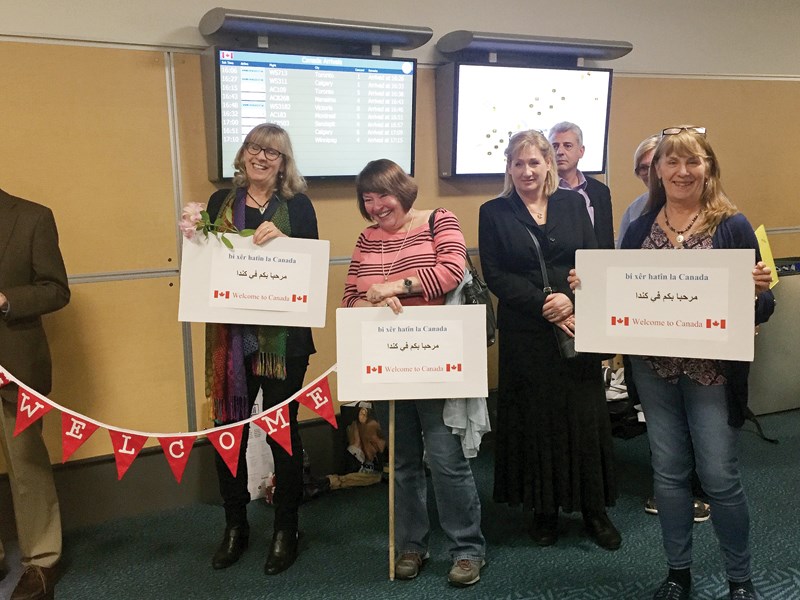They were children’s drawings of Christmas trees and snowmen.
Sketched and coloured by children living in a refugee camp in Erbil, Iraq, the pictures were a glimpse of what Christmas could be if they made it to Canada.
“They were in danger and they were the ones making us feel better,” says Carolyn Cole, a musician and parishioner at Lynn Valley United Church.
In 2015, seven North Shore churches united to offer aid to Syrian refugees. The impetus for the coalition was the image of three-year-old Alan Kurdi facedown in the sand on the coast of Turkey.
“This was the trigger, the tipping point,” Cole writes in a blog post entitled Why Do We Care About Syria?
There was a groundswell of support, Cole says, explaining there was also a “little pushback,” as some parishioners laboured suspicions over extremist ties.
“I was able to assure them that everything was fine,” Cole says. “A side issue was that they weren’t even Muslim, but I didn’t even want to bring that up.”
For Cole, the key issue was political, humanitarian inclusivity.
The churches opted to sponsor two families including 11 children. The choice was made after being told of challenges faced by large families, Cole explains.
Back in November 2015 the hope was that the family of seven (the first to be sponsored) would arrive in just a few months.
It took 19 months but the family’s plane finally touched down at YVR in mid-April.
There was “excitement in the air,” recounts Mary-Sue Atkinson, a volunteer with St. David’s United Church.
It was an arrival. It was also a reunion, Atkinson explains.
Two fathers led their families down the escalator at domestic arrivals. One father greeted brothers he hadn’t seen in years. The church is withholding the family’s surnames to protect their privacy.
The families had left relatives, friends, and possessions. They’d traversed a mountain range. But at the conclusion of a 47-hour journey they were joyful.
After making it through immigration, the families held handmade signs reading I Love Canada Government and People. They offered thanks and “so many smiles,” Atkinson recalls.
Lea Borlick was the one who started singing “O Canada,” Atkinson recalls.
“I don’t think I’ve ever felt as proud as when we sang “O Canada” that day,” she says.
Since then it’s been “one flurry after another,” Cole says.
While B.C.’s public transit system initially posed a puzzle, the families are accepting Canadian culture “with a calm kind of grace.”
However, leaving behind some of the friends they’d grown close to in Erbil has led to a “grieving period,” according to Atkinson. While refugees sometimes experience a “honeymoon” stage, those euphoric feelings can fade as the frustration of being in a new place and struggling with a new language mount.
To help with the transition, church volunteers are divided into colour-coded teams where each squad is tasked with something essential: from overseeing paperwork, ensuring medical needs are taken care of, and finding the family a home, which was particularly tricky, according to Cole.
Cole’s part is helping the families learn English, a third language after Kurdish and Arabic.
Last Saturday, 15 newcomers gathered at a Burnaby library to brush up on their English skills with Cole.
“The dads were pleased, a bit shy, and it was difficult for them to be brave to try to speak in English word,” she recalls.
However, Cole calls the experience “wonderful and rewarding.”
“These people overcame terrible odds. I have to say, they are still overcoming them.”
Money remains a concern, as Atkinson estimates they need another $14,000 to pay off government travel loans.
Anyone interested in helping the families can make a donation at the North Lonsdale United Church.



